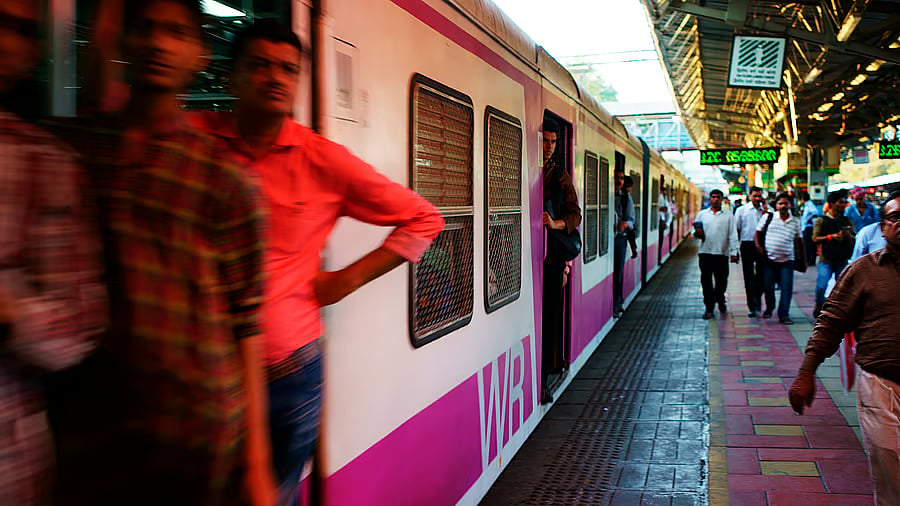
Representative image showing a Mumbai local train.
Credit: iStock Photo
Mumbai: Commuters suffer mental stress, anxiety and physical strain while travelling in local trains, says Dr Harish Shetty, an eminent Mumbai-based psychiatrist with vast experience in disaster mental health.
“Entering a local train is a skilled experience. You have to use your elbows, knees, and find a place to stand. You have to take care of your pockets, you have to save sweat, and of course, there are little fights,” said Dr Shetty.
“I have travelled in local trains right from third-standard to MD (Psychiatry). I know what people go through. Everyone is on edge. The anxiety involving catching a train for Mumbaikars is huge, which we perhaps do not realise,” he added.
"Every time I prepared to catch a train, there was a fear that I would miss my train and the next train would be very crowded,"a senior citizen said, wishing anonymity. "I decided to consult a psychiatrist through a common friend. After counselling sessions, I could overcome the anxiety issue," he said.
"That travelling in a train is part of the daily life of a Mumbaikar leads to anxiety. Which train to catch? Will it be crowded? Will it leave the station on time? Small delays can change things," the senior citizen said, adding that getting into a train or getting down is a gruelling exercise.
Dr Shetty's solution: “Do not get irritated. Start talking to fellow passengers, crack jokes. These simple things are stress-busters and will make the travel comfortable and ease your heart. Your blood pressure and pulse rate will be maintained,” he said.
He has also noticed the difference between today and years in the past. “ If anything happened to someone 25 years ago, people would care. Maybe they would offer water. Now, there is no compassion,” said Dr Shetty.
Traumatic incidents that occurred on the network have impacted many citizens.
A resident of the western suburbs, who was on the train when a bomb exploded during the 7/11 strike, now avoids going out on July 11. "I was in a second-class compartment, located one coach away from the first-class compartment, where the bomb exploded," he said.
"There was a huge explosion. I got off the train and started walking. The trains stopped, and then I came out of the station to look for a bus or an auto. It was only then that I realised the blast had taken place. I returned to the platform to see the complete mess. That is still there in the back of my mind," he added.
"Trauma imprinting, or hyperarousal and hypervigilance, are known phenomena following a disaster," Dr Shetty added. He also pointed out that incidents like the train blasts and the Mumbai deluge have also impacted people. "During heavy rains, people want to get into their homes as early as possible," he said.